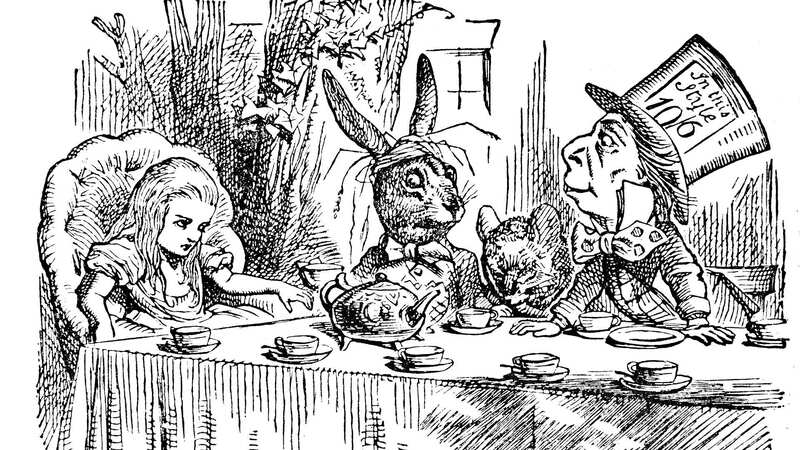You are viewing your 1 free article this month. Login to read more articles.
Johnson claims Bonnier urged ‘create the hype’ spending
Richard Johnson tried to resign from his position as chief executive of Bonnier Publishing one year before he exited the business, he reveals in his memoir, Show Me Your Medals. Johnson eventually left the group in February 2018, after its parent company, Swedish group Bonnier, told him that it wanted to re-orient the business away from the mass market.
Speaking to The Bookseller ahead of the title’s launch tomorrow (8th September), Johnson also maintains that the losses recorded in 2017 were a result of an accounting policy change, and that the business was on target to deliver on its sizeable investments in 2018. He says: "I didn’t leave Bonnier Publishing in a bad state or in trouble. I delivered what I promised I would and so did the team behind me. Bonnier decided to change direction in a massive way. That’s their call."
Johnson’s memoir details his extraordinary time at the business, which saw the group transformed from a small children’s publisher into the UK’s fourth or fifth biggest trade publisher, capturing authors such as Wilbur Smith and Lynda La Plante, and publishing autobiographies from the likes of Robbie Williams and Rio Ferdinand.
In the book, Johnson reveals that it was his intention to leave after 10 years, and that he tendered his resignation in April 2017, saying he was "physically and mentally gone". But he says his difficulties with the Swedish parent escalated after the departure of Jacob Dalborg, formerly head of Bonnier Books, in autumn 2017, adding that until that point the Bonnier executives were fully behind the business plan, including its expenditure. "Jacob’s departure killed us. We had a strategy: ‘create the hype’. We wanted to goad, and he explained all that to Sweden. I thought they got it, but obviously without Jacob they couldn’t make sense of it. I spent most of 2017 trying to make sense of the new Bonnier [under new boss Håkan Rudels]."
In the book, Johnson writes: "From 2014 onwards, the Swedes encouraged us no end to make them bigger and better. They were fully into the whole spirit, especially in 2016. They were well aware of the huge cost but also well aware of the purpose of [the costs], which was a ‘create the hype’ strategy... Jacob didn’t want to wait around, he wanted to expand books massively and he wanted it soon. It was essential therefore we got into the top tier of UK publishing very quickly. All other major publishers are seen firmly as very dull but we had this phrase, ‘publishing rock ’n’ roll’, and so we played up to that to be the point
of difference. You either loved us or you hated us, but no one can deny the hype policy worked." He says: "There was no logic to it. You have to throw money at it, not just on advances, but also nonsense [like launch parties]. They weren’t budgeted to make money, but that doesn’t mean there wasn’t a reason for them."
But, he recalls, "the mood from January 2018 onwards changed quite dramatically". Johnson recounts how Dalborg’s successor Rudels, and finance director Jim Zetterlund, came to Bonnier Publishing’s office on 15th February to "have it out" with him. "On the day, I was fired," he recalls. In the book, he writes: "Rudels officially told me that they wanted us to move to being a literary publisher. What was said in that meeting is private between us. I got up and left after a couple of minutes, though. I couldn’t even be bothered to throw my punch."
Johnson concedes that he’d lost the confidence of his own senior management team in the run-up. "We all sensed it [the change in mood]. And we all started to turn on each other a little bit. I’d lost the dressing room, probably from December onwards. Autumn 2018 was always the point when the investment would start to return—a big amount of cash was always going to come back. But it was always going to be difficult to hold the line until that point. We were so close to it. But the internal civil war started to come, and knowing that Sweden weren’t with me either, it was always going to be difficult. I think people saw I was vulnerable—probably for the first time."
The bottom line
Styling himself the "disruptor in chief of a whole industry", Johnson says he was an advocate for "the ideal of publishing for everyone", building a strong mass-market publisher where profit was not a dirty word. He writes: "We wanted to make fantastic books. Of course we should be proud that our books are helping to educate kids. The people who worked for me in publishing were incredibly talented and should be very proud of what they created over the years. But all books should be created at least with the thought of making money. Not all will work, sure, we get that. But at least you should try and act commercial with it."
Johnson remains unapologetic about the way he ran the business, but when asked about suggestions that there were instances of sexism—in particular around a summer party that left some staff feeling uncomfortable—concedes that "we probably did" go too far in some instances. "My oafishness was hyped up. Believe it or not, I’m actually quite a sensitive person. Once you start down that path, then you beef it up." He writes in the book: "We purposely pushed the boundaries." He does apologise to two former executives—Templar’s Mike McGrath and Mike Herridge, former m.d. of Autumn Publishing—in the book, both of whom he says he publicly called out. "I matured over the years and would never do that again."
Acknowledging that letters of complaint were sent to Sweden by current and former staff, he maintains that the parent had full oversight of the operation. "They supported all of it over many years. I did think, ‘How did we get away with that?’, but they did back it. It was planned. It was supported by Bonnier."
Johnson also argues that the investments made in the years up to his departure would pay off, and says he is sceptical about the plan to re-orient the business. "In my opinion, they should have started it again. Break it up, or sell it. The problem for them isn’t 2018—because the numbers will be good—but what’s coming in 2020/21 without further investment." Despite disagreements towards the end of his tenure, Johnson says he supports c.e.o. Perminder Mann, who has stepped up at the business now rebranded Bonnier Books UK. "I’ve not spoken to Perminder. She’s exceptionally talented and good luck to her."
Johnson wants the memoir to set the record straight, but admits to being "astonished I have not been gagged". He says: "There’s a bit of self-justification. The first version was a bit aggressive, and there’s still a lot of punching going on. I’ve tried to make it more funny, rather than aggressive. Half the time it was madness and fun, though sometimes it wasn’t." When asked how his book would impact Bonnier Books, he responds: "It’s not [being] done to help anyone. I’m not in this to help people, but I’m not standing back to allow one version of a story to go unchallenged."
On his future, Johnson says that proceeds from the memoir would be given to charity, but that he also plans to launch a non-fiction publisher, focused on social media talent, producing around 20 books a year.
The book is available to purchase here.














